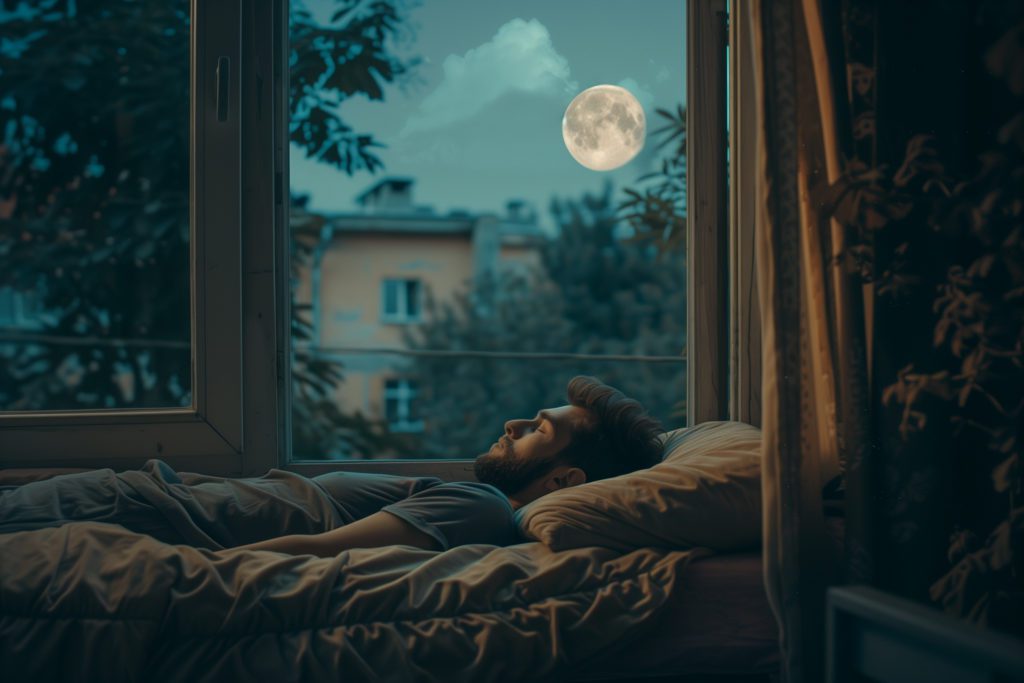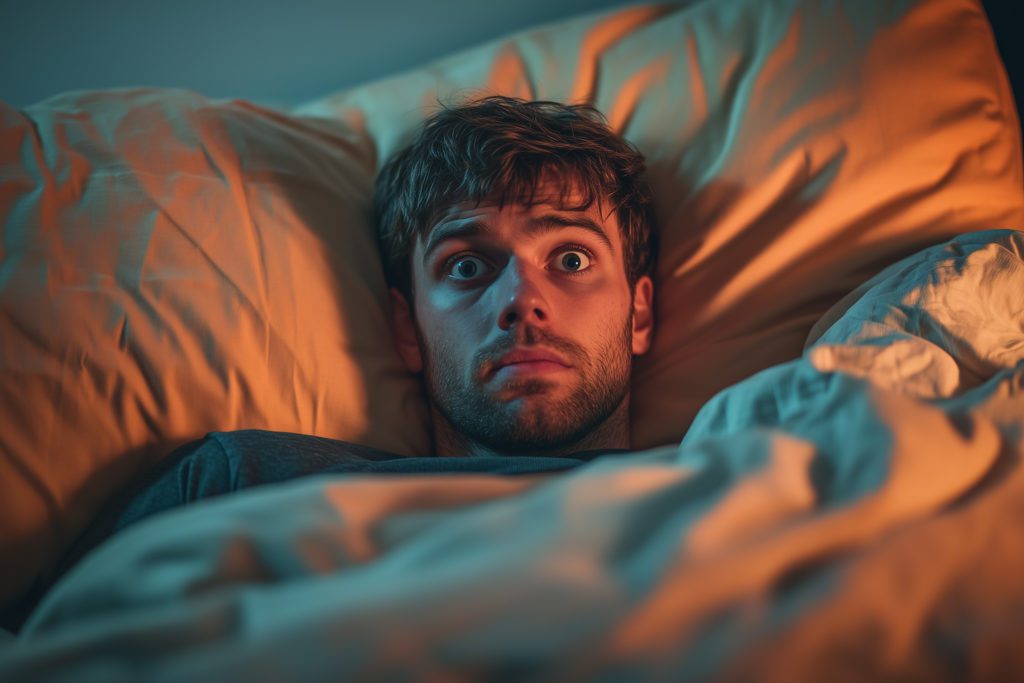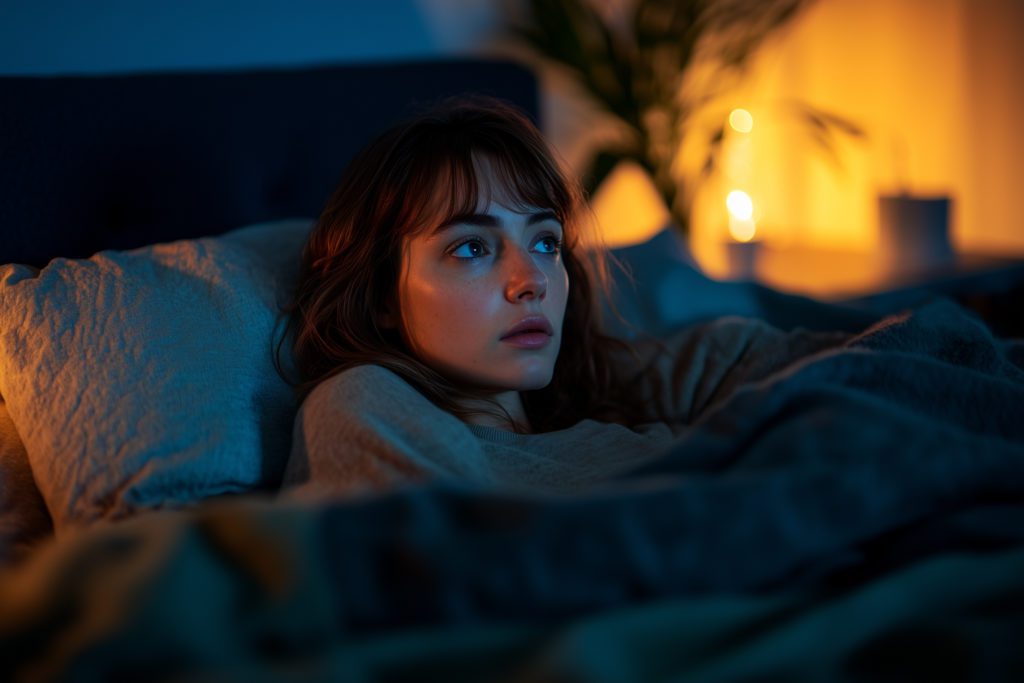
The Influence of Environmental Factors on Sleep and Waking Up
Environmental factors like temperature, sound, and indoor air quality play a role in sleep quality. They can affect how long it takes you to fall asleep

Do you struggle to nod off at night? Insomnia is a nightmare that can rob you of your well-being. Your sleep environment can have a huge impact on how well you sleep. Studies have shown that things like light, sound, smell and temperature all influence sleep quality. Let’s take a closer look at these factors and how you can modify them to sleep more soundly at night.
Environmental Influences on Sleep
Environmental factors, such as sound, light, and temperature all play a significant role in overall sleep. Sleep is heavily influenced by these things. That’s why sleep experts recommend tweaking your sleep environment for the best rest possible.
Light
Light is perhaps the biggest environmental influencer on sleep. Our circadian rhythm, or 24-hour sleep-wake cycle, is regulated by light. When you are exposed to sunlight in the morning, it suppresses the production of melatonin, the hormone that regulates your circadian rhythm and promotes sleep. This signals to your brain and body that it’s time to wake up. This is why you might find it easier to wake up without an alarm when exposed to bright sunlight in the morning.
At the same time, light reduces sleepiness and sleep quality. And, many people sleep with artificial light in their rooms — from streetlights to electronics. Research has shown that small amounts of light, like what you might see coming in from your windows at night, can significantly affect your sleep and health.
Sound
Sound can have both a positive and negative impact on your sleep. Environmental noise, such as outside traffic and airplanes can significantly disrupt sleep. Studies have shown that it leads to fragmented sleep, daytime sleepiness and fatigue.
One study found that exposure to airplane noise increases the risk of sleeping less than seven hours a night.
White noise, on the other hand, can improve your sleep. White noise is similar to static on a TV. It has an equal volume across all frequencies. This type of noise can drown out or mask other annoying sounds. Studies have shown that white noise can help you fall asleep much faster.
Similar to white noise, pink noise can also help you sleep better. Pink noise is a type of color noise. It is a constant background noise that has a lower frequency than white noise. Examples of pink noise include the sound of waves crashing on a beach, rustling leaves, or a steady rain. Because of its lower frequency, pink noise is calming and can help you relax before bed.
Smell
Scent is often overlooked when it comes to sleep. But, it plays a role in relaxation and sleep.
Studies have shown that pleasant odors decrease arousal (so you sleep deeper) and positively impact mood. Some smells, such as lavender, have sedative effects. Even your partner’s smell can impact your sleep. In one study, published in the journal Psychological Science, it was found that participants who went to bed with their partner’s scent had greater sleep efficiency compared to those who had a control scent.
Temperature
Temperature is one of the most important factors in determining how well you sleep. Extreme temperatures (both hot and cold) can ruin a good night’s sleep.
Your core temperature naturally falls in preparation for sleep. This signals to your body that it’s time for bed. This temperature fluctuation, called thermoregulation, is the key to getting a good night’s sleep. Towards the morning, your body temperature naturally starts to rise. This prepares your body for wakefulness.
You can help your body’s natural thermoregulation process by keeping your bedroom temperature on the slightly cooler side. When your bedroom is too hot, it leads to restlessness and discomfort. This can make it harder to fall asleep and cause interrupted sleep. On the other hand, if your room is too cold, it can also cause discomfort and sleeplessness.
Air Quality
Indoor air pollution can decrease the quality of your sleep. In one study, high levels of carbon dioxide and indoor air pollution decreased sleep efficacy by more than 3 percent. Another study, published in Environmental Pollution, found poor indoor air quality resulted in a number of adverse sleep outcomes, including breathing problems during sleep.
How To Create the Perfect Sleep Environment
Ideally, you’ll want a sleep environment that promotes relaxation and helps you fall asleep faster.
- Block distracting sounds - If you sleep with the TV on, stop. Use blackout curtains to block annoying sounds from outside like the neighbor’s dog.
- Embrace white and pink noise - Use a noise machine or sound spa to create consistent gentle noise while you sleep.
- Tune into sleep sounds - Gentle sleep sounds, like those found on Pillow, are the ideal noises to fall asleep to. They are designed to lull you to sleep.
- Add aromatherapy to your bedtime routine - Jasmine, chamomile, lavender, and sandalwood all have sleep-promoting properties.
- Eliminate light - Two hours before bedtime, reduce bright light in your room. Use a low bedside light to see. Then, right before bed, switch off or block all lights in your room, including those coming from electronics, such as alarm clocks. You might consider wearing a high-quality sleep mask or using blackout shades or curtains to cut out even more light.
- Check your thermostat - The ideal temperature for sleeping is between 60 and 67 degrees Fahrenheit. For a smooth transition into dreamland, make sure your thermostat is set between these two numbers.
- Shut the windows and doors - You can improve air quality in your home by keeping windows and doors closed and using air conditioning instead — especially when there are air quality alerts in place in your area.
- Eliminate dust and contaminants - Prevent dust particulates from circulating throughout your bedroom by dusting and vacuuming the space frequently.
- Use an air purifier - Remove unwanted irritants and particles from the air in your bedroom.
- Become a plant parent - Plants are a great way to purify your indoor air. They help trap toxins and release oxygen for cleaner air. This makes for a fresher sleeping environment.
A More Restful Sleep Environment Equals Better Sleep
Your bedroom environment plays a significant role in your sleep. It affects both your ability to fall and remain asleep. So, it’s important to take steps to make sure this space is right for sleep. Managing things like sound, light, and temperature is the key to a good night’s sleep. You can create the perfect sleep sanctuary with the above tips.

Written by
Emily Mendez
Emily Mendez is a former therapist and mental health author. She is one of the leading voices in mental health. Emily's writing has appeared in eCounseling, SonderMind, and more. Emily is frequently interviewed by Healthline, Fatherly, INSIDER, Family Circle, and other national media for her advice and expert opinion on the latest mental health topics.
Download Pillow
Get help
Press & News
Legal
Connect
X (Twitter)
Company
Copyright © Neybox Digital Ltd.



